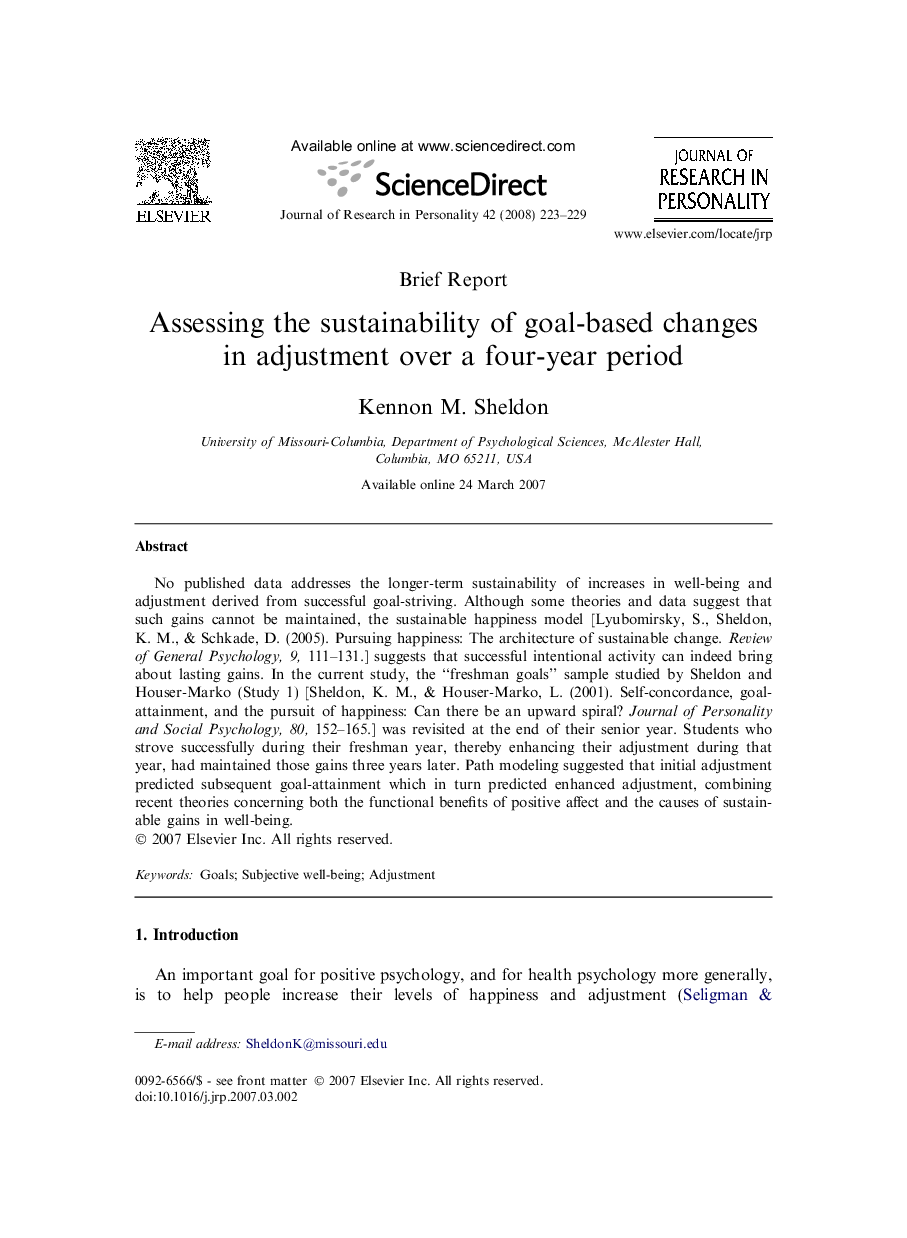| Article ID | Journal | Published Year | Pages | File Type |
|---|---|---|---|---|
| 952119 | Journal of Research in Personality | 2008 | 7 Pages |
No published data addresses the longer-term sustainability of increases in well-being and adjustment derived from successful goal-striving. Although some theories and data suggest that such gains cannot be maintained, the sustainable happiness model [Lyubomirsky, S., Sheldon, K. M., & Schkade, D. (2005). Pursuing happiness: The architecture of sustainable change. Review of General Psychology, 9, 111–131.] suggests that successful intentional activity can indeed bring about lasting gains. In the current study, the “freshman goals” sample studied by Sheldon and Houser-Marko (Study 1) [Sheldon, K. M., & Houser-Marko, L. (2001). Self-concordance, goal-attainment, and the pursuit of happiness: Can there be an upward spiral? Journal of Personality and Social Psychology, 80, 152–165.] was revisited at the end of their senior year. Students who strove successfully during their freshman year, thereby enhancing their adjustment during that year, had maintained those gains three years later. Path modeling suggested that initial adjustment predicted subsequent goal-attainment which in turn predicted enhanced adjustment, combining recent theories concerning both the functional benefits of positive affect and the causes of sustainable gains in well-being.
